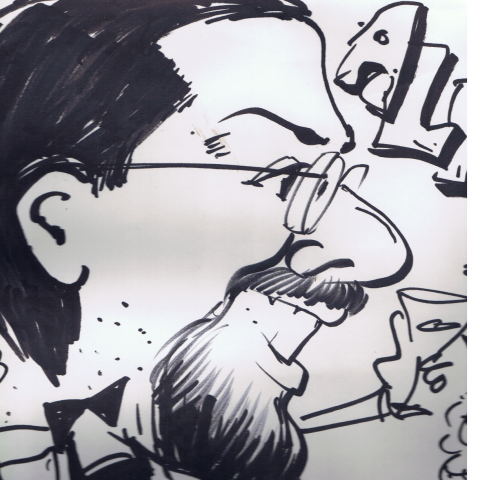I would like to share with you how radically some of my views have evolved in the last few years. For example I recently discovered that my take on the Desi caste system is not as dismissive and disdainful as it used to be some time back.
A buddy of mine recently told me about meeting a random senior Desi guy and having a heated argument about the caste system. My buddy essentially called Desis stupid and backward and how their belief in the caste system is a classic example of misinformed generalization. Below is my take on the subject. 
Hey bud , just read your messages. It seems a part from the hilarious you are presenting a serious side of your argument as well. Here are my two cents.
First and foremost, I think some humility is necessary. Some doubt that one’s current position may be wrong. Recognizing that more information has the potential to move / improve our perspectives or even completely shift our paradigms. I am dismayed that the level of certainty implied in your message is borderline absolute.
I strongly believe that doubt, uncertainty and confusion are very good things. These make us uncomfortable and that is precisely why we should not skirt away but rather embrace them as useful tools. That allows us to appreciate and contextualize myriad situations and formulate appropriate views and decisions. Quantum theory also tells us that reaching absolute certainly is perhaps an unattainable goal. Therefore in my opinion all we can do is refine our understanding by gathering more information so it “tends to reality”. This allows one to have strong convictions and still not be stubborn, avoid lazy certitude and use one’s faculties to appreciate the context.
For having this belief I mostly share your disdain of generalizations, however that applies to our arguments and ideas as well. Otherwise we run the risk of being intellectually dishonest. Therefore, thinking contemporary Pakistani society is a monolithic group of like minded zombies is inaccurate. There are over “180 million shades of green”, you and I being two of those. And no, BDSM has not gone mainstream in PK yet 🙂
Now, on the subject. We rely on contrasts and judgements when we form our opinions, from mundane to profound. Not so long ago the world was not a global village. No internet, easyJet, Daewoo Bus or satellite TV. There must’ve been countless factors but allow me to focus on the following two because I think they are easier to understand without a need to invoke heavy anthropological constructs.
Travel was expensive even to distances which are now trivial. A trip from Pindi to Sumandri was an ordeal. For some, it still is. This led to somewhat insular environments where unique traditions and values developed under different sets of clash and fusion. Also, the best way to survive and succeed was to “belong” to a group. And to some extent it still is, only at a different scale.
The more we go back in time, the more intense these differences become on even smaller geographical separations. Notice the significant differences between Potohaari and Gujarati culture and dialect separated only by a couple of hundred clicks. And these differences are an integral part of one’s identity which stems from heritage, aspirations, culture and many more factors.
In the West, when we meet somebody from “South Asia”, don’t we color our notions of that person based on that? Most are keen to know even the national or provincial origins. And it helps. We know what vernacular to use, which ideas and analogies to employ to articulate what we are trying to convey more effectively and efficiently. Take it to extreme and this may lead to discriminating thoughts and actions. I think that extreme is wrong but it is OK to recognize and appreciate the other’s identity. We should celebrate and enjoy diversity but how could we do that without acknowledging the differences?
I guess this necessity coupled with the above two factors explains why the focus on castes is more intense in Pakistan in older generations and areas where resources are scarce.
Ain’t this relevance of castes in PK essentially the same as to the relevance of national origin in the West, the main difference being only of the scale? Therefore I believe it would be self-righteous to criticize others for behaving just like we do.
Extreme attitudes are demonstrably wrong in most cases, as in discrimination. Not acknowledging and appreciating others identity completely is also somewhat extreme, in my opinion.
Regards,
//Ali


Shahid Ashraf said on
I like the following views of the author ! Multiple ways it articulate that it is ok to identify yourself to a group or caste but going further discriminate based on origin or religious affiliation is not acceptable!!